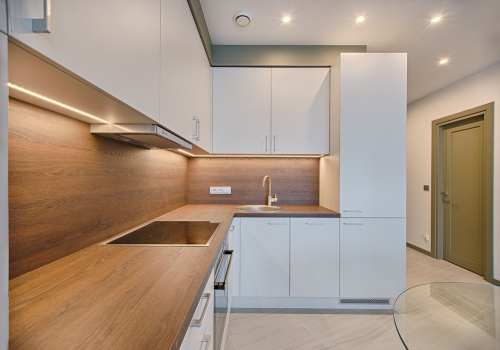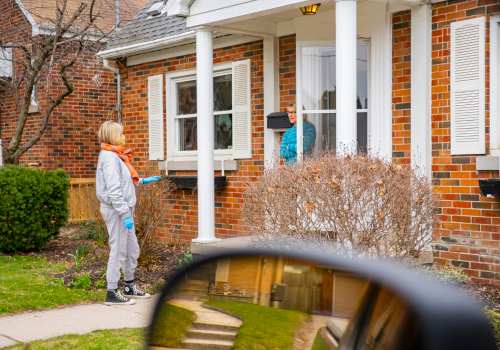Like Alice stepping through the looking glass, signing a lease can transport you into an unfamiliar world of responsibilities and obligations.
You’re about to commit to a significant financial and lifestyle decision that’ll impact your daily life for months or even years to come.
While the excitement of a new home might tempt you to rush through the paperwork, there are vital questions you shouldn’t overlook.
From hidden costs to unexpected restrictions, what you don’t ask now could lead to frustrating surprises later.
Let’s explore the essential inquiries that’ll help you avoid becoming another cautionary tale in rental history.

What’s Included in the Rent?
Four essential components typically comprise a rental payment beyond just the base rent amount.
You’ll need to determine if utilities (water, electricity, gas, trash) are included or if you’re responsible for setting up and paying these accounts separately.
Next, verify whether maintenance and repairs fall under the landlord’s financial responsibility or if you’ll shoulder some costs.
Many properties also include amenities like parking, storage, or gym access – confirm if these are bundled into your rent or require additional fees.
Insurance coverage presents another critical consideration.
While your landlord’s policy covers the building structure, you’ll need to understand if you’re required to maintain renter’s insurance for your personal belongings and liability protection.
Don’t assume anything is included without explicit confirmation in your lease agreement.
Get all inclusions in writing, and request a detailed breakdown of any additional fees or charges you’ll encounter throughout your tenancy.
Before signing, create a thorough list of all monthly expenses, both included and separate from rent, to accurately assess your total housing costs and avoid unexpected financial obligations later.
How Are Repairs Handled?

Understanding the repair and maintenance protocols is essential before signing any lease agreement.
You’ll need to clarify who’s responsible for different types of repairs and the standard response times for maintenance issues.
Ask your landlord about their specific procedures for both emergency and routine maintenance requests.
Get clear answers about whether you’ll need to handle minor repairs yourself or if all maintenance issues go through the property manager.
Confirm the preferred method for submitting maintenance requests – whether it’s through an online portal, email, or phone call.
Make sure you understand what qualifies as an emergency repair versus a standard maintenance issue.
You’ll want written documentation of the landlord’s maximum response times for different types of repairs.
Pay special attention to how after-hours emergencies are handled and whether you’ll have access to emergency contact numbers.
Don’t forget to ask about any maintenance costs you might be responsible for and get these terms in writing.
Also, verify if you’re allowed to make minor improvements or repairs yourself, and what the reimbursement process entails if you pay for approved repairs out-of-pocket.
Are Utilities My Responsibility?
Every lease agreement handles utilities differently, so you’ll need to determine exactly which services fall under your financial responsibility.
Common utilities include electricity, gas, water, sewer, trash collection, internet, and cable TV.
Some landlords include all utilities in the rent, while others expect tenants to set up and pay for services independently.
Before signing, request a detailed breakdown of utility responsibilities in writing.
You’ll want to know the average monthly costs for each utility and whether you’ll need to establish new accounts in your name.
Ask about any utility deposits required and confirm whether the property has separate meters for individual units.
Pay special attention to seasonal utilities like heating and air conditioning.
In some buildings, these systems are centrally controlled, which can affect both your comfort and expenses.
If you’re responsible for HVAC costs, inquire about the system’s efficiency and maintenance history.
Don’t forget to verify whether there are any utility-related fees beyond basic service charges, such as common area maintenance fees or water delivery charges.
Understanding these details helps you calculate your true monthly expenses and avoid unexpected costs after moving in.
Can I Modify the Space?

Most rental agreements come with strict guidelines about making changes to the property, so you’ll need to clarify these rules before signing.
Determine whether you’ll need written permission for modifications like painting walls, mounting TVs, installing shelves, or changing fixtures.
Some landlords allow these changes with prior approval, while others strictly prohibit any alterations.
Ask specifically about nail holes, picture hanging systems, and temporary modifications like removable wallpaper or peel-and-stick tiles.
You’ll want to understand which changes require professional installation and if you must restore the property to its original condition upon moving out.
This includes replacing original fixtures you’ve removed or repainting walls to their initial color.
Get all approved modifications in writing as part of your lease agreement.
Document the landlord’s specific requirements for each type of change, including preferred contractors, quality standards, and restoration expectations.
If you’re planning to run a home-based business, confirm whether you can install necessary equipment or make workspace adaptations.
Understanding these parameters upfront will prevent lease violations and help secure your security deposit when you move out.
What’s the Pet Policy?
A thorough pet policy review must happen before signing any lease, as restrictions can vary dramatically between properties.
You’ll need to understand specific requirements about pet types, sizes, breeds, and quantities allowed.
Many properties restrict certain dog breeds or impose weight limits, while others might only permit cats or small caged animals.
Ask about pet deposits, monthly pet rent, and any non-refundable pet fees.
You’ll want these amounts in writing, along with clear terms about what they cover.
Additionally, verify if the property requires pet liability insurance or proof of vaccinations.
Some leases mandate professional carpet cleaning upon move-out for pet owners.
Clarify the property’s rules regarding outdoor spaces, waste disposal, and noise control.
You should know if there are designated pet relief areas, cleaning stations, or specific hours when pets must remain quiet.
Also confirm whether you’ll need written documentation from a healthcare provider for emotional support or service animals, as these often fall under different legal guidelines than standard pets.
Get every pet-related agreement in writing as part of your lease to protect both you and your pets from future disputes.
Who Lives Next Door?

Learning about your potential neighbors provides critical insights before committing to a lease.
Your neighbors’ lifestyle patterns, behaviors, and routines will directly impact your daily living experience and peace of mind.
You’ll want to assess both immediate neighbors and the overall tenant demographic.
Ask the landlord about the occupancy status of adjacent units, including whether they’re long-term residents or frequent short-term renters.
Inquire about any history of noise complaints, conflicts, or violations within the building.
Visit the property at different times – morning, evening, and weekends – to observe noise levels, parking situations, and general activity patterns.
You’ll get a realistic sense of what life will be like in your potential new home.
Pay attention to signs of responsible neighboring, such as well-maintained private spaces and respect for common areas.
Don’t hesitate to introduce yourself to current residents.
They’re often willing to share valuable information about the building’s atmosphere, management’s responsiveness, and any persistent issues.
This firsthand intelligence can help you avoid unpleasant surprises and make an informed decision about your future living situation.
When Is Rent Due?
While understanding your neighbors sets the foundation for harmonious living, rent payment terms establish the financial framework of your tenancy.
You’ll need to determine the exact due date, grace period, and accepted payment methods to avoid costly penalties or potential eviction notices.
Ask your landlord specifically about the rent collection process: Whether it’s due on the first or another date of the month, and if there’s any flexibility.
Don’t assume all landlords follow the standard first-of-the-month schedule.
Clarify if weekends or holidays affect the due date, and get the grace period terms in writing.
Confirm the acceptable payment methods – whether they’ll take personal checks, require certified funds, or mandate electronic payments through a specific platform.
You’ll want to know about any processing fees associated with different payment options.
Some landlords offer rent discounts for early payment or automatic withdrawals.
Document all payment-related details in your lease agreement, including late fees, returned check charges, and compounding penalties.
Understanding these terms upfront helps you maintain control over your finances and prevents unexpected costs that could compromise your financial independence.
Is Renters Insurance Required?

Throughout most rental agreements, landlords maintain insurance coverage for the physical building structure but not for tenants’ personal belongings inside their units.
That’s why you’ll need to determine if renters insurance is mandatory under your lease terms or if it’s optional.
Many modern leases now require tenants to obtain and maintain renters insurance throughout their tenancy.
You’ll want to verify the minimum coverage amounts specified in the lease, typically ranging from $100,000 to $300,000 in liability coverage.
Don’t forget to ask if you’ll need to list your landlord as an “interested party” on your policy.
Even if it’s not required, getting renters insurance is a smart move.
It protects your belongings against theft, fire, water damage, and other perils while also providing liability coverage if someone gets injured in your unit.
Most policies cost between $15-30 monthly, making it an affordable safeguard.
You’ll also need to understand if there are specific coverage requirements for high-value items like jewelry or electronics, as these often require additional riders.
Before signing, confirm whether you’ll need to provide proof of insurance before move-in or within a certain timeframe after occupancy begins.
How’s the Cell Phone Reception?
Poor cell phone reception can greatly impact your daily life, making it essential to verify signal strength before signing a lease.
Test your phone’s signal throughout different areas of the property, including bedrooms, living spaces, and outdoor areas.
Don’t forget to check signal strength in basements or lower-level units, which often experience considerably reduced reception.
You’ll want to test multiple carriers’ signals if possible, as reception can vary dramatically between providers.
Check your phone’s signal bars and conduct test calls to guarantee clear audio quality.
If you’re working remotely or rely heavily on mobile data, run speed tests to confirm adequate bandwidth for your needs.
If you discover weak reception, ask the landlord about cell signal boosters or whether they’ll permit you to install one.
Some buildings have distributed antenna systems (DAS) or other signal enhancement infrastructure already in place.
You should also investigate nearby cell towers using online coverage maps from major carriers.
Consider that building materials like concrete, metal, and energy-efficient windows can interfere with signals.
If reception is poor, you might need to factor in the cost of switching carriers or purchasing signal enhancement equipment before committing to the lease.
What’s the Guest Policy?

A property’s guest policy can greatly impact your living experience and social life.
You’ll need to understand the specific rules regarding overnight guests, extended stays, and visitor parking to avoid potential lease violations and conflicts with your landlord.
Ask if there’s a limit on how many consecutive nights a guest can stay, as many properties cap this at 7-14 days.
Determine whether you’re required to register guests or notify management when having overnight visitors.
Some complexes mandate guest registration for security purposes or charge fees for extended stays beyond a certain period.
Verify the rules about common area usage by guests, including pool access, gym facilities, and parking arrangements.
Many properties restrict guest parking or require temporary permits.
You’ll also want to know if there are quiet hours that apply to visitors and whether you’re fully responsible for your guests’ behavior on the property.
Don’t forget to inquire about any seasonal variations in guest policies, such as stricter rules during holidays or peak periods.
Understanding these details beforehand will help you maintain your social freedoms while staying compliant with your lease terms.
Where Can I Park?
Parking arrangements can greatly impact your daily convenience and rental costs.
You’ll need clear answers about whether parking is included in your rent or requires an additional fee.
For assigned spots, verify the exact location and confirm it’s documented in your lease agreement.
Ask if there’s a limit on the number of vehicles you can park and whether you’ll receive a dedicated permit or parking pass.
If you’re relying on street parking, research local regulations, including street cleaning schedules, permit requirements, and seasonal restrictions that could affect your vehicle’s accessibility.
For properties with shared parking lots, understand the rules about guest parking, oversized vehicles, and motorcycle spaces.
Confirm whether there’s security surveillance, lighting, or gates protecting the parking area.
You’ll also want to know the protocol for snow removal and maintenance of parking surfaces.
Don’t forget to inquire about bicycle storage, if that’s relevant to you.
Some properties offer dedicated bike racks or storage rooms, while others might prohibit keeping bikes in certain areas.
Getting these details in writing prevents future disputes and guarantees you’re not caught off guard by unexpected parking situations.
How’s Security Managed?

Beyond vehicle protection, the overall security of your future residence demands thorough investigation.
Ask about the building’s access control systems, including key fobs, security codes, or biometric entry points.
You’ll need specifics about visitor protocols and delivery management, especially if you’re planning to use food delivery or package services frequently.
Inquire about surveillance coverage – both interior and exterior cameras – and determine who monitors these systems.
Don’t forget to verify the emergency response protocols and whether there’s 24/7 security personnel on-site.
You should also understand the landlord’s policy on changing locks between tenants and whether you’re permitted to install additional security devices like cameras or smart locks.
Check the building’s lighting systems, particularly in parking areas, walkways, and common spaces.
Ask about recent security incidents and how management addressed them.
Request documentation of the building’s compliance with local security ordinances and fire codes.
It’s essential to understand your rights regarding security deposit refunds if security promises aren’t met.
FAQs
What Happens if the Landlord Decides to Sell the Property?
If your landlord sells, your lease typically transfers to the new owner who must honor its terms. You’ll keep your rights as a tenant, but you should get written confirmation of the lease transfer.
Is There a History of Pest Infestations in This Building?
You’ll want to directly ask about past pest issues and get documentation of previous treatments. Request pest control records and check local health department complaints to verify the building’s pest management history.
Are There Quiet Hours or Noise Restrictions in Place?
With 68% of renters citing noise as their top complaint, you’ll want clear details about quiet hours. Most buildings enforce restrictions between 10 PM-7 AM, protecting your right to peaceful living.
Can I Run a Home-Based Business From This Rental Unit?
You’ll need explicit permission since many leases prohibit business operations. Check local zoning laws, HOA rules, and lease terms. You’re risking eviction if you don’t get written approval from your landlord.
What’s the Policy on Early Lease Termination?
You’ll want clarity on early termination fees and notice requirements. Typically, you’re looking at 2-3 months’ rent penalty, but some landlords offer lease buyouts or allow replacement tenants to avoid hefty charges.
Final Thoughts
Armed with these questions, you’re now a million times better prepared to navigate the lease-signing process.
Don’t allow yourself to be caught off guard by unexpected policies or hidden costs.
By methodically addressing each point – from utilities to security protocols – you’ll secure a living arrangement that aligns with your requirements.
Remember: your signature binds you legally, so execute due diligence before committing to any rental agreement.